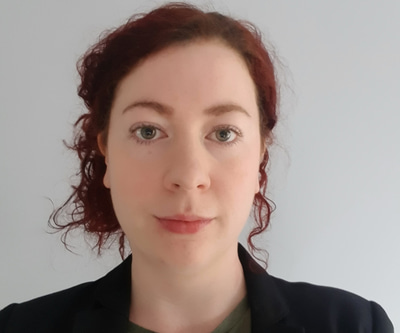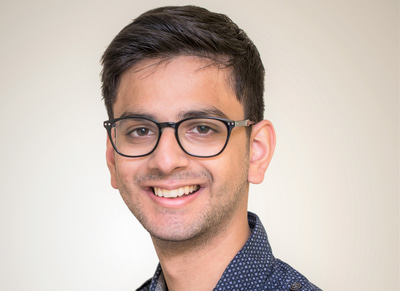- OT
- Professional support
- AOP
- The big questions for optics: a view from new AOP Councillors
The big questions for optics: a view from new AOP Councillors
What does 2021 have in store? And how will the profession respond? OT asked some of the AOP’s new Council intake for their reflections, goals and concerns

02 July 2021
What issue in optometry is the most important to you?
“I think one of the biggest issues within optometry currently is the changing professional landscape, with an ageing population, an over-stretched hospital eye service and underfunding for primary eye care services,” Rachel Hiscox told OT. She explained that expanding the role of the optometrist through standardised shared care schemes across the UK would “not only offer improved patient care, but also increase the scope of the optometrist.”
Paul Chapman-Hatchett also recognised the significance of the ageing population, explaining that “we need to raise the awareness of the roles, skills and expanding scope a domiciliary optometrist can have in providing General Ophthalmic Services (GOS) and also ophthalmology services in a community setting.”

Jasmin Matharu identified that many hospital optometrists self-fund extra courses with no additional financial support, explaining that “networking with each other would give an insight to how we can get funds for our development.”
Fatima Nawaz told OT she felt a sense of responsibility to educate people around the sales and supply of contact lenses. “This can be detrimental to people’s vision, especially with the increase in the sale of products available via social media and influencers.”
Optometrists have a huge opportunity to take a more holistic primary role in eye care with the support of our ophthalmological colleagues; one that delivers on our patients’ needs and remunerates fairly
Kris Cottier noted how COVID-19 has highlighted to the hospital eye service (HES) that optometrists are highly skilled professionals in the provision of the minor eye conditions service (MECS) and the COVID-19 urgent eye care service (CUES). “We are now seeing a willingness from the HES to engage with our profession in the long-term co-management of HES patients that was unprecedented previously. The profession has made considerable gains in a relatively short timescale and it is important that we build upon these gains for the benefit of our patients,” he said.

For James Brawn, the most important issue in the profession is the General Optical Council’s ongoing Educational Strategic Review (ESR). “The current educational system is well established, and consistently produces highly skilled clinicians. It is my concern that any significant overhaul, or change to the way in which optometrists are educated and trained, could harm the profession, and our patients,” he asserted.
I am passionate about pushing the boundaries for hospital optometrists, as optics continues to diversify it is important to adapt to the changes
Indy Ghuman also noted the importance of the ESR, telling OT that it has significant long-term consideration. “With new optometry programmes under the new requirements to start from 2023–2024, the incoming 2021 cohort of optometry students will be present to see the tangible overlap with their studies and consequences of this gigantic development in optometric education,” he said. Looking to the short-term, Ghuman commented that the focus must be on the phased return of university learning on campus as a key issue for student optometrists. “There is a hope of ‘ordinary’ student life returning for the 2021–2022 academic year,” he said, adding: “For many this will be for the first time in a lecture theatre, so it is crucial students are given the chance to forge strong relationships with their peers and ensure they receive an opportunity to grow on campus in ways online learning is incapable of.”
Echoing these thoughts, Karan Vyas said that the current changes and reforms to education will be the “baseline which will help define a wider remit for optometrists in the UK. These changes have the potential to future-proof the profession and increase the clinical skills of the profession.”
As a newly elected councillor, what changes would you like to see to help the profession move forward?
Stephanie Kearney told OT there is a need for a more balanced workload. “Optometrists are increasing becoming involved in shared care schemes as well as the utilisation of more advanced techniques such as OCT. However, the additional time required to analyse such scans or to see such patients is not always accounted for in the commercial environment many of us work in.” She also mentioned increased investment in GOS to reflect the increasing specialism of optometry and its role in supporting the hospital eye service, and greater public awareness and appreciation of the key services optometry practices provide.

Jasmin Matharu noted that there is a lack of standardisation between hospitals. “It is important that we all deliver the same level of care to our patients. This will allow for transparency between different trusts,” she said. Matharu highlighted the need to represent the interests of hospital optometry within the AOP, and planned to help hospital optometrists communicate with peers to raise their concerns, and create a bridge between High Street and hospital optometry.
Karan Vyas explained that he would like to see reform of education where students are able to “better gain clinical experience and are exposed to more pathology before leaving university.” Vyas also called for changes in daily practice so make sure that practitioners are not exposed to discrimination in the workplace.

Paul Chapman-Hatchett noted that housebound individuals “have the same right to access high quality eye care as the wider population and we can help highlight where obstacles currently exist which impede this.” Explaining that domiciliary continues to grow, he said the profession needs to help support and shape professional standards and development of optometrists.
We need to build on the gains the professions have made. Every practitioner deserves to be given the opportunities to maximise their skill-set and work to the maximum of their capability
Fatima Nawaz highlighted her passion to help tackle racism and bullying in the workplace and to provide a safe environment for professionals to practice in. “As I have worked in many modes of practice, I feel I have an in-depth relatable understanding of what issues colleagues face daily. I have a friendly approach when interacting with colleagues which helps them relay their concerns,” she explained.
Mehul Patel concluded that the pandemic has “forced the industry to adopt a different mode of working within a short space of time,” but added: “Optometrists have a huge opportunity to take a more holistic primary role in eye care with the support of our ophthalmology colleagues; one that delivers on our patients’ needs and remunerates fairly. With more and more practices embracing technology and investing in OCT, core training needs to encompass these advancements and produce skilled professionals who can competently manage patients under supervision of the hospital eye service.”
Kris Cottier said: “We need to build on the gains the professions have made. Every practitioner deserves to be given the opportunities to maximise their skill-set and work to the full extent of their capability. We need to continue to highlight the advantages of eye care in the primary eye care setting rather than in secondary care. We need to continue to be seen as the go-to practitioner for all things eyes.”
How would you describe the perspective you bring to AOP Council?
“I am an experienced optometrist based in Wales since 1999. I have worked in a variety of environments and roles including private practice; I locum for small and large-scale companies and my current role is a professional services optometrist for a leading domiciliary provider, OutsideClinic. I am passionate about the domiciliary sector and believe it is highly rewarding. Equally I am proud of Welsh Government’s promotion of eye health and have taken various opportunities to further my knowledge.”
Kris Cottier
“I am fortunate to have worked in a variety of clinical environments, with experience of High Street practice, house practice and home visiting, multiple and independent practices, laser and surgery post-ops, hospital work and continuing education provision. I have a breadth of experience and understanding of the challenges faced in optical and optometry practice.”
Jasmin Matharu
“I am passionate about pushing the boundaries for hospital optometrists, as optics continues to diversify it is important to adapt to the changes. I am committed to promoting the ideals of the profession and have the enthusiasm to devote the necessary time required of an AOP representative.”
Indy Ghuman
“I aim to bring a fresh outlook to the AOP Council, full of vigour coupled with a hands-on approach to represent key issues that students care about and drive action.”
James Brawn
“My experience working in academia, education, hospital optometry and as a self-employed locum I feel gives me a balanced perspective on the profession as a whole.”
Paul Chapman-Hatchett
“As a domiciliary optometrist with over 25 years of working in this sector. I want to use this experience to raise the profile of domiciliary optometry and the opportunities our sector has for all optometrists. As the managing director of Care Opticians, I am always looking at ways that we can improve the quality of care to our patients. This means ensuring that we maintain and drive up our clinical standards, embrace technology and maximise all primary care pathways available to our patients.”
Rachel Hiscox
“Since qualifying in 2009, I have been incredibly lucky to work in a wide range of settings, including hospital optometry, small independent practice, academia and industry. This experience has allowed me to develop a broad perspective of optometry and to appreciate the many and varied challenges faced across the profession.”
AOP Council election results in 2021
AOP members were invited to vote in the seven constituencies where there were more candidates than vacancies: Scotland, North West England, East Midlands, West Midlands, London, South East England, and Yorkshire and the Humber.
The AOP Board appointed additional Councillors to represent different sectors of the membership. In 2021, for the first time, this includes Councillors representing directors of independent practices, directors of multiple practices, domiciliary care optometrists, employees of independent practices, employees of multiple practices, independent prescribing optometrists and locum optometrists.
Henrietta Alderman, former AOP chief executive, said: “I’m delighted to be welcoming our new Council, in a new structure designed to represent the full range of our membership. Throughout the pandemic, we have seen tremendous commitment from optometrists to provide eye care. This election is yet another example of that dedication, with more members stepping forward and participating in the process than in previous years.”
Alderman continued: “I would like to sincerely thank our current and departing Councillors for all their hard work in very exceptional circumstances.”
Incoming chair of AOP Council, Dr Julie-Anne Little said: “It’s great to see such enthusiasm in the profession to share experiences and tackle issues together. The new structure also offers a different dynamic with an increased number of posts that reflect the diverse roles of our members.”
A full list of Council members including Councillors that continued their term of office can be found on the AOP website.


Comments (0)
You must be logged in to join the discussion. Log in